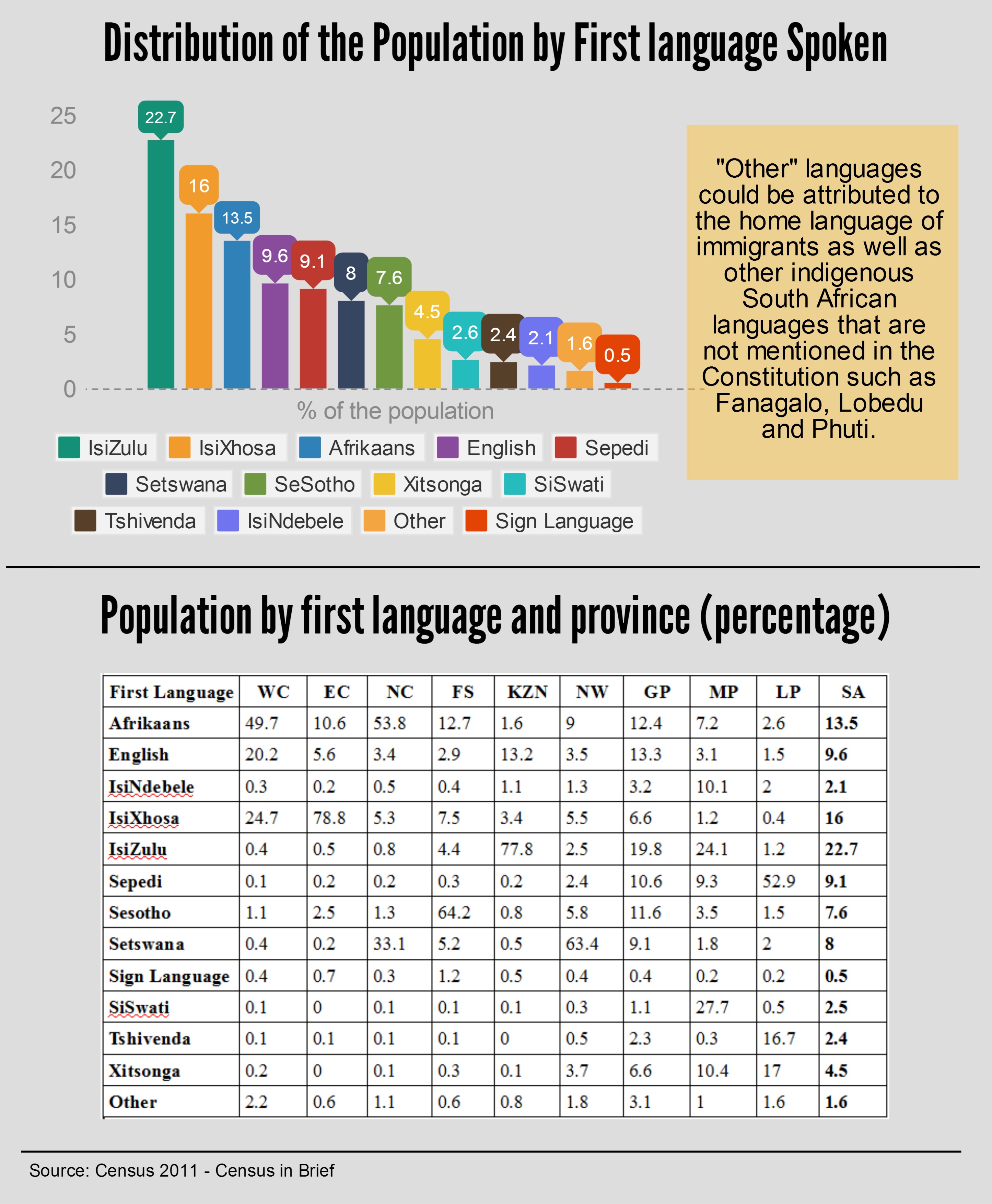On Tuesday, the Department of Basic Education (DBE) briefed the Basic Education Portfolio Committee on the Incremental Introduction of African Languages (IIAL) in South African schools. Although a progress report on the implementation of the IIAL is premature and cannot be released to the public until the pilot project is complete and a report is handed over to the Minister, MPs received a brief presentation on the matter.
The pilot project, which commenced on 1 February 2014 and will conclude on 31 October 2014, saw the introduction of previously marginalised African languages being implemented at Grade 1 level as a third language.
The language dilemma seems to be twofold according to the DBE. First, most teacher-training seems to be conducted in English. This is a problem when teachers are then expected to teach in an African language such as Isizulu or IsiXhosa. Secondly, most learners are taught in English even though this language ranks only fourth out of the 11 official languages as the most spoken home language, according to the 2011 Census.

DBE noted that Section 6 of the Constitution says, “Recognising the historically diminished use and status of the indigenous languages of our people, the state must take practical and positive measures to elevate the status and advance the use of these languages”. Further, section 29(2) of the Bill of Rights says, “Everyone has the right to receive education in the official language or languages of their choice in public educational institutions where that education is reasonably practicable”. The Language in Education Policy passed in 1997 assumes “the learning of more than one language should be general practice and principle in our society. That is to say, being multilingual should be a defining characteristic of being South African”.
The DBE's Acting Deputy Director-General for Curriculum Policy, Support and Monitoring, Mr Mathanzima Mweli, told the MPs that there are “huge language gaps” when it comes to learning and teaching African languages in schools, and that very little or nothing has been done by institutions, broader civil society and the education sector in general to address these problem.
“All children have the ability to learn, knowledge skills are coded in language...Most teachers are trained in English but expected to teach in an African language. This is a problem. If they are not fully equipped to teach, the results will be bad,” said Mweli.
The IIAL policy, which seeks to strengthen the use of African languages at the home language level as well as in schools, was piloted in Grade 1 in 228 schools spread across all the provinces except the Free State which was not ready for implementation at the time that the project was initiated.
According to the DBE, the project's progress has been good, however, Mweli warned that “unless we take a conscious decision to focus on African languages, very little progress will be made. It will take some time but we need to address this issue... There is a lot we need to do as a country.
Although, the pilot phase will only be complete at the end of October this year, the Department plans to implement the IIAL policy at schools as early as the beginning of the 2015 school year. The DBE hopes to have all foundation phase teachers trained to teach an African language.
Currently, there are 3 738 schools in SA that do not offer any African languages as a subject. The DBE aims to have all schools offer at least one African language, and to roll out teacher-training and resource provisioning before schools start next year.


Comments
Keep comments free of racism, sexism, homophobia and abusive language. People's Assembly reserves the right to delete and edit comments
(For newest comments first please choose 'Newest' from the 'Sort by' dropdown below.)